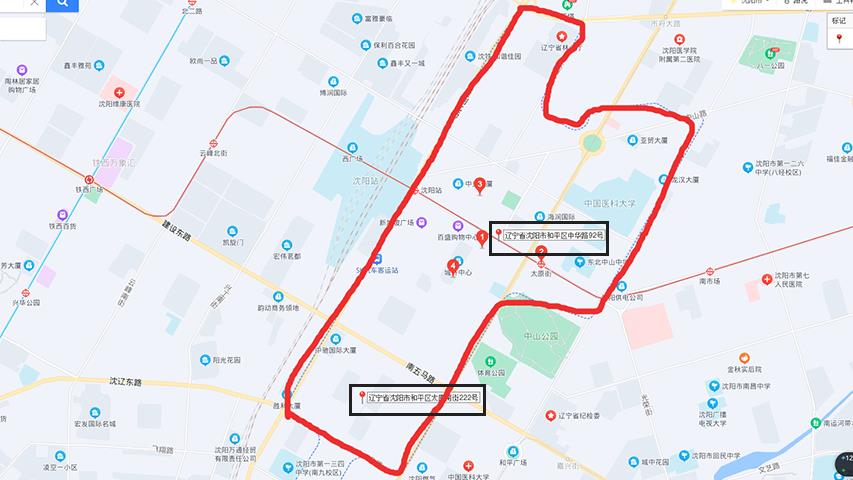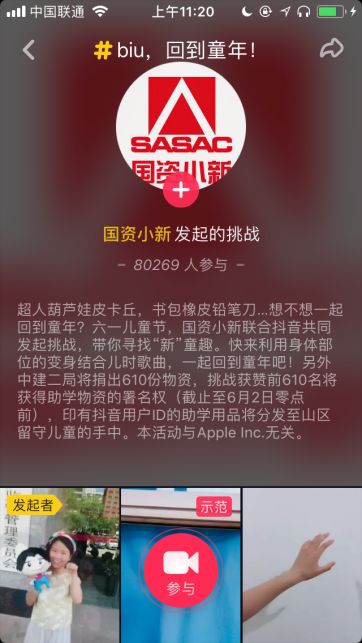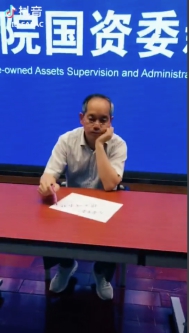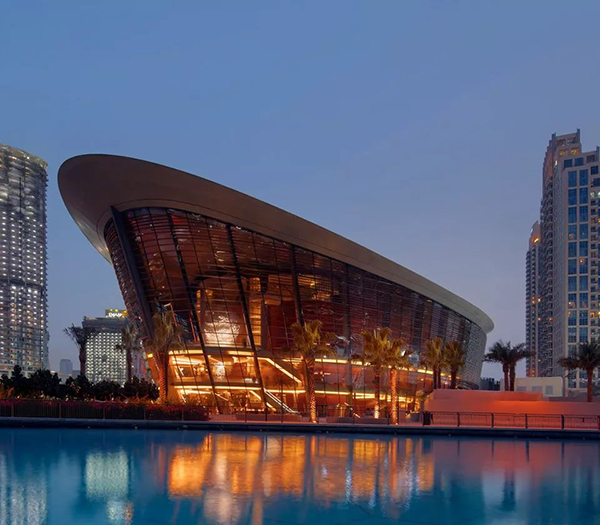Xinhua News Agency, Beijing, February 25th
Thoroughly study and implement the important thought of the Supreme Leader General Secretary on the Party’s self-revolution.
Deepen the high-quality development of discipline inspection and supervision work in the new journey
— — Work Report at the Third Plenary Session of the 20th Central Commission for Discipline Inspection in the Communist Party of China (CPC)
(January 8, 2024)
Li Xi
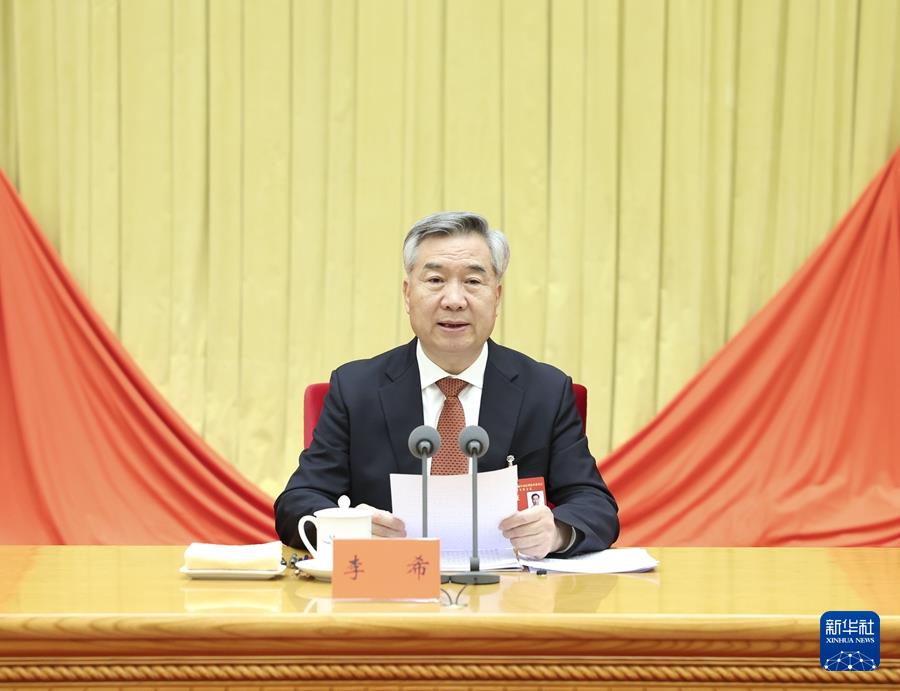
On January 8, the third plenary session of the 20th Central Commission for Discipline Inspection of the Communist Party of China (CPC) opened in Beijing. On behalf of the Standing Committee of the Central Commission for Discipline Inspection, The Politburo Standing Committee (PSC) of the Communist Party of China and Li Xi, secretary of the Central Commission for Discipline Inspection, made a work report entitled "Deeply study and implement the important thought of the Supreme Leader General Secretary on the Party’s self-revolution, and further promote the high-quality development of discipline inspection and supervision in the new journey". Xinhua News Agency reporter Pang Xinglei photo
On behalf of the Standing Committee of the 20th Central Commission for Discipline Inspection, I will make a work report to the third plenary session for your consideration.
The main tasks of this plenary session are to thoroughly study and implement Socialism with Chinese characteristics Thought of the Supreme Leader in the new era, fully implement the spirit of the 20th National Congress of the Communist Party of China and the Second Plenary Session of the 20th Central Committee, review the work of discipline inspection and supervision in 2023, and deploy tasks in 2024. This morning, the General Secretary of the Supreme Leader delivered an important speech, profoundly expounded the party’s important thought of self-revolution, made strategic arrangements for deepening the comprehensive and strict administration of the party, the building of a clean and honest party style and the anti-corruption struggle, and pointed out the direction for doing a good job in discipline inspection and supervision in the new journey. We should conscientiously study and understand and resolutely implement it.
I. Work Review in 2023
The year 2023 is the first year to fully implement the spirit of the 20th National Congress of the Communist Party of China, and it is also a year of economic recovery and development after three years of epidemic prevention and control in COVID-19. In the face of the complicated international environment and arduous and arduous tasks of domestic reform, development and stability, the CPC Central Committee with the Supreme Leader as the core unites and leads the whole party and people, makes concerted efforts to overcome difficulties, comprehensively promotes Chinese-style modernization, and leads the great rejuvenation ship of the Chinese nation to break the waves. The State Commission for Discipline Inspection of the Central Commission for Discipline Inspection and the discipline inspection and supervision organs at all levels keep in mind the expectations of the Supreme Leader General Secretary’s "new team, new atmosphere, new situation and new actions", take the comprehensive implementation of the spirit of the 20 th Party Congress as the main line, so as to promote the whole party to deeply understand the decisive significance of "two establishment", resolutely achieve "two maintenance" as the mission responsibility, and take promoting the solution of the unique problems of the big party and improving the comprehensive and strict management system of the party as the goal direction. Focusing on the education of studying and implementing the theme of Socialism with Chinese characteristics Thought of the Supreme Leader in the new era and the education and rectification of the national discipline inspection and supervision cadres, we will study hard, conduct practical research and implement it, and always strengthen political supervision, correct discipline and fight corruption with strict tone, strict measures and strict atmosphere. The high-quality development of discipline inspection and supervision has made new progress and new achievements, providing a strong guarantee for building a socialist modern country in an all-round way.
(1) Thoroughly study and implement the spirit of the 20th Party Congress, and firmly grasp the correct direction of discipline inspection and supervision in the new journey.
Closely around the Party’s 20th strategic deployment, based on functional responsibilities, we should strengthen systematic planning, do practical investigation and study, find the right position of responsibilities in the new journey of building a strong country and national rejuvenation, and perform our duties in a down-to-earth manner.
Grasp the spirit of the 20th Party Congress completely, accurately and comprehensively. The Standing Committee of the Central Commission for Discipline Inspection regards learning the spirit of the 20th Party Congress as the first lesson in performing its duties, establishes a normal learning mechanism, and holds a seminar for members of the 20th Central Commission for Discipline Inspection, so as to accurately grasp the important ideas, important viewpoints, major strategies and major initiatives determined by the 20th Party Congress. There is a learning upsurge in the whole system, and various forms and levels of staff training are carried out, with a total of 51,000 training courses and 2.679 million trainings. Publicize the historic achievements and changes in the cause of the party and the state in the new era, deeply interpret the deployment requirements of the Party’s 20th National Congress on promoting the Party’s self-revolution and comprehensively administering the Party strictly, unify thoughts and gather strength.
Focus on key problems and conduct in-depth investigation and research. Focusing on "always keeping sober and firm in solving the unique problems of the big party, unswervingly promoting and improving the system of comprehensively and strictly administering the party", we will carry out research on the topic and lead the whole system to profoundly grasp the responsibilities and mission. Comprehensively sort out the key tasks of the 20th National Congress of the Communist Party of China and the Second Plenary Session of the 20th Central Commission for Discipline Inspection, and list 12 important issues. The Standing Committee of the Central Commission for Discipline Inspection led the research, grasped the working rules and solved the work problems. The accredited (dispatched) institutions of the State Commission for Discipline Inspection of the Central Commission for Discipline Inspection and the leading bodies of the Commission for Discipline Inspection of all provinces, autonomous regions and municipalities have carried out a total of 736 research projects, and through research, they have made clear their ideas and improved their measures, thus forming a system norm.
Focus on the five-year layout. Strengthen overall planning, study and formulate a task book to promote the high-quality development of discipline inspection and supervision during a term of office. Assist the CPC Central Committee to revise the Working Rules of the Central Anti-Corruption Coordination Group, formulate the Work Plan of the Central Anti-Corruption Coordination Group (2023-2027) for the first time, formulate the objectives and tasks of the Central Anti-Corruption Coordination Group for international anti-corruption pursuit and cross-border corruption control in 2023-2027 for the first time, and promote the formulation of the Central Inspection Work Plan (2023-2027). Formulate the Five-year Plan for the Formulation of Laws and Regulations of the State Commission for Discipline Inspection of the Central Commission for Discipline Inspection (2023-2027) and the Plan for the Construction of Digital Discipline Inspection and Supervision System of the State Commission for Discipline Inspection (2023-2027), and steadily promote its implementation.
(2) Solidly carry out thematic education and education rectification, and cast a solid political consciousness, ideological consciousness and action consciousness of loyalty to the party.
We will make overall plans for theme education and education rectification, carry out study and education, inspection and rectification throughout, and strive to build a discipline inspection and supervision iron army that is loyal, clean, responsible and brave in struggle with higher standards and stricter requirements for pure thinking and pure organization.
Understand the Supreme Leader’s Socialism with Chinese characteristics Thought in the New Era with Heart and Feelings. The Standing Committee of the Central Commission for Discipline Inspection formulated and strictly implemented the "first topic" system, followed up and conveyed the spirit of the important speech and important instructions of General Secretary of the Supreme Leader for 53 times, carried out 7 collective studies, and held a 7-day reading class for resident leaders, leading the whole system to read the original works, learn the original works and understand the principles with emotion, faith and mission, and consciously used it to arm the mind, guide practice and guide all work of discipline inspection and supervision. Highlight political education and party spirit education, adhere to the "five-learning linkage" mechanism of the Standing Committee and team members’ learning, the supervision of government party committees, the research of grass-roots party branches, the promotion of learning by party groups, and party member’s self-study. The main leaders of discipline inspection and supervision organs at all levels take the lead in giving lectures on theme party classes and making reports on clean government education, and carry out centralized rotation training throughout the system, which has achieved practical results in casting souls, enhancing wisdom, rectifying morals and promoting work by learning.
Unswervingly shoulder the great political responsibility of "two maintenance". Conscientiously implement several provisions on strengthening and safeguarding the centralized and unified leadership of the CPC Central Committee, strictly implement the system of asking for instructions and reporting, and promptly take the initiative to ask for instructions and reports from the CPC Central Committee and the General Secretary of the Supreme Leader on major issues, major cases and important work, so as to show loyalty to the party, listen to the party’s command and do their duty for the party through practical actions. Improve the closed-loop implementation mechanism of political elements, study and promote the important instructions of the Supreme Leader General Secretary one by one, and ensure the implementation of each piece. Strict political discipline and rules, and severely punish two-faced and dishonest people who are disloyal to the party. The national discipline inspection and supervision organs punished 8890 people who violated political discipline, including 34 middle-ranking cadres.
Strict management, forging discipline inspection and supervision iron army. Strengthen organizational leadership, strictly supervise and guide, conduct pressure at all levels, and check and correct yourself inward, rectify and clean up the portal. Formulate the "Ten Prohibitions on the Network Behavior of Discipline Inspection and Supervision Cadres". We will carry out special rectifications such as online words and deeds of discipline inspection and supervision cadres, failure to check documents, handling cases in violation of regulations, quality problems of cases, and ineffective resolution of repeated reports, and formulate the Provisions on Prohibiting Discipline Inspection and Supervision Cadres from Drinking in violation of regulations. We will formulate systems for selecting and appointing discipline inspection and supervision cadres, exchanging posts in rotation, having heart-to-heart talks, and restricting employees from leaving their posts, so as to standardize the selection and use of cadres. Appoint the second special inspector of the State Supervision Commission and consciously accept supervision from all sides. In-depth warning education was carried out, and the "Warning Record of Typical Cases of Discipline Inspection and Supervision Cadres Violating the Law" was published. Organize the centralized preaching of advanced models of discipline inspection and supervision system in the new era, and edit and publish the record of advanced models. Renaming China Supervisory Association as China Discipline Inspection and Supervision Association and changing its name, setting up "Sword Fund" to care for cadres and workers, formulating and issuing implementation opinions on timely recognition and reward, and educating and guiding cadres to build political loyalty and courage to take responsibility.
(C) closely around the Party’s 20th strategic plan to strengthen political supervision, to ensure a good start in building a socialist modern country in an all-round way.
Adhere to the centralized and unified leadership of the CPC Central Committee and implement the decision-making arrangements of the Party’s Twentieth Congress as the task of the political supervision center, promote the concretization, accuracy and normalization of political supervision, and ensure the smooth implementation of the Party Central Committee’s decrees.
Specifying and determining the supervision task. Focusing on the grand blueprint of comprehensively promoting the great rejuvenation of the Chinese nation with Chinese modernization, we will focus on implementing new development concepts, building new development patterns, and promoting high-quality development, and refine the content of political supervision. Guide the supervision committees of the discipline inspection commissions of all provinces, autonomous regions and municipalities to determine the key points of annual political supervision in light of the actual situation, promote the stationed (dispatched) institutions to closely follow the responsibilities of the supervision units and grasp the tasks of political supervision, and urge the discipline inspection and supervision institutions of the universities in charge of one school and one policy to carry out political supervision, thus forming a good situation of promoting the implementation of the spirit of the 20 th National Congress of the Communist Party of China by linking up and down.
Accurately correct outstanding problems. Focus on the implementation of the decision-making and deployment of the CPC Central Committee, and engage in departmental and local protectionism, and continue to follow up and supervise issues such as illegal management and use of medical insurance funds, illegal occupation of cultivated land, concealment of mine accidents, and interception of funds returned by labor dispatch units. Accurately grasp the nature, consequences and impact of the problem and promote rectification. In-depth search for dereliction of duty, violation of discipline and law behind the problem, and timely find and deal with it.
Normalization promotes implementation. Focusing on the decision-making arrangements made by the CPC Central Committee and the General Secretary of the Supreme Leader, such as party and state institutional reform, scientific and technological innovation, flood control and disaster relief, safe production and prevention and resolution of major risks, we will follow up in time and take the initiative to strengthen the supervision of the whole process. Adhere to the regular inventory, dynamic efficiency, improve the ledger management, supervision and accountability, "looking back" and other systems to ensure that the supervision responsibility is not idling, the work is not stopped, and the rectification is effective.
(4) Continue to deepen the anti-corruption struggle and improve the level of system rectification and global governance.
Adhere to the no-forbidden zone, full coverage and zero tolerance, keep an eye on key issues, key areas and key targets, keep an eye on new corruption and hidden corruption, push forward without corruption, do not want to rot, and comprehensively consolidate the hard-won overwhelming victory.
Resolutely eliminate the hidden dangers of systemic corruption. Deepen financial anti-corruption and severely punish Fan Yifei, Liu Liange, Li Xiaopeng, Tang Shuangning and other corrupt elements. Focus on corruption in state-owned enterprises, universities, sports, tobacco and other fields, intensify punishment, deepen the special rectification of corruption in the field of grain purchase and sale, and cooperate with the special rectification of statistical fraud and the centralized rectification of corruption in the national pharmaceutical field. The State Commission for Discipline Inspection of the Central Commission for Discipline Inspection filed a case to examine and investigate 87 middle-ranking cadres such as Dong Yunhu, Sun Zhigang and Han Yong. The national discipline inspection and supervision organs filed a total of 626,000 cases, retained 26,000 people, and gave 610,000 disciplinary and administrative sanctions. Thoroughly dissect sparrows, carry out special investigations on a series of corruption cases in Liaoning, issue research reports to various regions and departments, and make and broadcast warning education films. In-depth analysis of corruption and morals in the field of football, promote thorough investigation and thorough rectification, and improve the system and mechanism for the healthy development of football. Special research on the governance of corruption in the investment fund of the national integrated circuit industry, the profit of leading cadres for relatives and friends and other issues, and the promotion of plugging loopholes and improving supervision.
Efforts will be made to investigate and deal with the "fly corruption and ant corruption" around the masses. In-depth rectification of employment and entrepreneurship, education and medical care, old-age social security, ecological and environmental protection, safe production, food and drug safety, law enforcement and justice and other areas of the masses have strongly reflected outstanding problems. We will carry out special rectification of unhealthy practices and corruption in the field of rural revitalization, and strictly investigate the problems of corruption involving black and evil and acting as a "protective umbrella" for black and evil forces. The national discipline inspection and supervision organs investigated and dealt with 77,000 cases of corruption and work style problems in the people’s livelihood, and punished 75,000 people for party discipline and government affairs.
Deepen the investigation of bribery. The punishment for bribery was intensified, and a total of 17,000 people were investigated and investigated. Promote the improvement of laws and regulations related to the punishment of bribery, coordinate the construction of the national briber information database, and provide institutional basis and basic support for the accurate punishment of bribery.
Deepen international cooperation against corruption. Held the third "One Belt, One Road" international cooperation summit forum, the Clean Silk Road special forum, and signed memorandums of understanding on anti-corruption cooperation with six countries. Concentrate on investigating cross-border corruption cases, recover 10.2 billion yuan, and the "Skynet 2023" operation recovered 1624 people who fled.
(5) Persevere in implementing the spirit of the eight central regulations, and cultivate the new trend of the times of seeking truth and being pragmatic and working in unity.
Take the eight central regulations as long-term and effective iron rules and hard leverage, continue to be strict and grasp them to the end, keep a close eye on key points, target treatment, and promote customs.
Never stop braking hedonism and extravagance. Upgrade and investigate, publicly inform six leading cadres at the official level in Qinghai Province of typical cases of violating discipline against the wind during the study and implementation of the Party’s 20th spiritual training class, specially inform the subordinate units of the Ministry of Transport and the National Health and Wellness Commission of organizing public funds tourism in the name of training, and carry out unannounced visits and key briefings on the "four winds" issue. Promote the construction of a comprehensive platform for the supervision of party style and political style, and investigate and deal with a number of hidden and hidden problems of public funds. A total of 62,000 problems of hedonism and extravagance were investigated and dealt with nationwide, and 83,000 people were criticized, educated and dealt with.
Focus on rectifying formalism and bureaucracy. Efforts were made to correct and implement the problems of the Party Central Committee’s decision-making and deployment, the implementation of policies and measures, the inaction of grassroots governance, the neglect of old debts by new officials, and the disregard of the interests of the masses, and publicly notified 10 typical cases that aggravated the burden on the grassroots. A total of 46,000 formalism and bureaucratic problems were investigated and dealt with nationwide, and 71,000 people were criticized, educated and dealt with.
Correcting trees and promoting normal and long-term work style construction. Strengthen the supervision of important nodes such as New Year’s Day, Spring Festival, May Day, Mid-Autumn Festival and National Day, and increase the intensity of public notification of typical cases in which on-the-job leading cadres violate the spirit of the eight central regulations. Promote the relevant departments of the central government to improve official reception and other relevant system regulations. Improve the refinement system around policy formulation, assessment, accountability, rewards and punishments, and focus on solving the problems of formalism and bureaucracy. Strengthen the construction of a clean and honest culture in the new era and vigorously promote the new style and righteousness.
(6) Strengthen the Party’s discipline construction in an all-round way, and promote the whole Party’s awareness of obeying rules and disciplines.
Put discipline construction in a more prominent position, be clear about the direction, establish rules, have a positive atmosphere, strengthen immunity, and promote the unity of strict management and supervision and encourage responsibility.
Strengthen regular discipline education. Improve the way of discipline and law education into the classroom, and promote the Party Committee (party group) theoretical learning center group and party schools (administrative colleges) and cadre colleges at all levels to take party constitution Party discipline education as a compulsory course. Strengthen the supervision of young cadres’ education management, and integrate education into daily supervision by various means, such as visiting and investigating, discussing and communicating, and talking in a clean government. Edit confessions of cadres who have seriously violated discipline and law, and carry out warning education in different levels and categories.
Resolutely maintain discipline and rigidity. The problem of violating party discipline was found to be investigated and dealt with together. Strictly organize discipline and change discipline, and complete the reply to the opinions of the national and provincial people’s congresses, governments and CPPCC candidates. The State Supervision Commission of the Central Commission for Discipline Inspection responded to 2666 opinions throughout the year. Pay close attention to serious accountability for serious safety accidents, and focus on 10 cadres in charge of accountability such as the collapse of residents’ self-built houses in Changsha, Hunan, the fire accident in Anyang, Henan, the collapse of Xinjing coal industry in Inner Mongolia, the fire accident in Changfeng Hospital in Beijing, and the gas explosion accident in Yinchuan, Ningxia. A total of 2,317 Party organizations, 43,000 leading cadres in party member and 43,000 people under supervision were held accountable.
Accurately use the "four forms". Study and draft the "Implementation Measures for Discipline Inspection and Supervision Organs to Accurately Use the" Four Forms "(Trial)", and issue typical cases to strengthen guidance. The national discipline inspection and supervision organs used the "four forms" to criticize, educate and handle 1.718 million person-times. Among them, 1.096 million people used the first form, accounting for 63.8% of the total number of people; 492,000 people used the second form, accounting for 28.6%; 64,000 people used the third form, accounting for 3.7%; The fourth form was used by 66,000 people, accounting for 3.9%, of which 20,000 were suspected of duty crimes and transferred to the procuratorate. Implement the requirements of "three distinctions" and be responsible for the person in charge and the person in charge.
(7) Focus on exerting strength, being upright and innovating, and polish the patrol sword brighter and brighter.
Comprehensively implement the central inspection work policy, promote the deepening development of inspection work, and continuously enhance the shock and penetration of inspections, which has effectively transmitted a strict tone.
Unswervingly deepen political inspections. Under the leadership of the CPC Central Committee, we will promote the revision of the inspection work regulations and further improve the inspection system, mechanism and responsibility system. Convene a national inspection work conference, and make overall arrangements for routine inspections, inspections "looking back" and mobile inspections, "three arrows in one go" and making efforts in the same direction. Two rounds of central inspections were organized, and a total of 57 medium-sized enterprises, 5 medium-sized financial enterprises and 7 party organizations of central and state organs were inspected, and the full coverage of party organizations of medium-sized enterprises was completed with high quality.
Strengthen patrol rectification and application of results. Study and sort out the important instructions and requirements of the General Secretary of the Supreme Leader when listening to the inspection report one by one, put forward work suggestions, and resolutely promote implementation. In two consecutive rounds, a total of seven units were inspected "looking back", and 62 units were evaluated for rectification, strengthening the establishment and reform, and inspecting while patrolling. Establish a patrol and rectification consultation mechanism to enhance the joint efforts of rectification and supervision. 26 work suggestions were handed over to the leading comrades in charge of the CPC Central Committee and the State Council and relevant departments to promote deepening reform and improving the system.
Deepen the linkage between patrol and inspection. Strengthen the guidance of local and central units’ inspections. At the provincial, municipal and county levels, 231,000 party organizations were inspected, and 182 central units conducted internal inspections on 27,000 party organizations. Carry out special inspections in conjunction with the central inspection to promote the quality and efficiency of inspections.
(eight) thoroughly implement the requirements of governing the party by the system and by the rules, and promote the improvement of the party’s self-revolutionary system.
Deepen the reform of the discipline inspection and supervision system with the focus on system construction, promote the improvement of the supervision system of the party and the state, and provide strong support for the comprehensive and strict management of the party.
Continue to promote the reform of the discipline inspection and supervision system. With the approval of the CPC Central Committee, a special group for the reform of the discipline inspection and supervision system was integrated and established, and the "Key Points for Deepening the Reform of the Discipline Inspection and Supervision System in 2023" was formulated. We will promote the reform of accredited institutions, adjust and improve the establishment of discipline inspection and supervision institutions in the reform-related departments at the central level of the party and state institutions, improve the mechanism of "group-group" collaborative supervision, "room-group" joint supervision, and "room-group-place" joint case handling, and gradually expand the exercise of supervision rights of accredited institutions. We will deepen the reform of the discipline inspection and supervision system in colleges and universities, and promote the pilot project of the provincial discipline inspection commission to send discipline inspection and supervision teams to provincial universities and state-owned enterprises. Formulate a workflow that is coordinated with audit supervision. The State Commission for Discipline Inspection of the Central Commission for Discipline Inspection will carry out the handover of the "Audit Essentials" and strengthen follow-up supervision, giving full play to the important role of auditing in combating corruption and chaos. Formulate some opinions on strengthening grassroots discipline inspection and supervision, and improve the working mechanism of district cooperation, upgrading supervision and cross-inspection based on county-level overall planning.
Improve the system of discipline inspection and supervision laws and regulations. Promote the improvement of the system, assist the CPC Central Committee in revising the disciplinary regulations, and further strictly enforce political discipline and rules. Strengthen institutional supply, and form 30 institutional achievements such as problem clue disposal, case quality evaluation, suggestions for discipline inspection and supervision, and handling cross-border corruption cases. Promote the "slimming" of the system and put forward clean-up opinions on the study of 297 regulatory documents involving discipline inspection and supervision. Deepen the interpretation of the system, cooperate with relevant units to study and formulate the interpretation of relevant issues concerning the applicable law of duty crimes, and carry out grassroots discipline enforcement business tours.
Ensure the effective operation of institutional mechanisms. Deepen the implementation of the Ombudsman Law and complete the first determination of the rank of city and county supervisors. Accelerate the construction of a digital discipline inspection and supervision system, further promote the construction of big data and informatization, focus on solving the difficult problems such as repeated data reporting, and empower the work of rectifying discipline and combating corruption with science and technology.
Under the strong leadership of the CPC Central Committee with the Supreme Leader as the core, party organizations at all levels have earnestly fulfilled their political responsibilities of managing the party and the party, continuously exerted their efforts to strictly manage the party and fight against corruption in an all-round way, and the good political ecology has been continuously consolidated and developed. At the same time, we must be soberly aware that the "four major tests" and "four dangers" faced by the party have existed for a long time, the outstanding problems of "four impurities" within the party still exist, and the soil and conditions arising from corruption problems have not been eradicated, which has brought practical challenges to the new journey of comprehensively administering the party strictly. There is still a gap between the discipline inspection and supervision team in terms of theoretical accomplishment and political accomplishment, fighting spirit and fighting skills, standardization, legalization and regularization, and problems such as "black under the lamp" still exist to varying degrees. We must attach great importance to these problems and solve them effectively.
Second, profoundly understand the important thought of the Supreme Leader General Secretary on the Party’s self-revolution.
Since the 18th National Congress of the Communist Party of China, the General Secretary of the Supreme Leader has led the whole Party to promote the comprehensive and strict administration of the Party with unprecedented determination, creatively put forward a series of original and iconic new ideas, new ideas and new strategies, formed the important thought of the General Secretary of the Supreme Leader on the Party’s self-revolution, and guided the century-old Party to open up a new realm of self-revolution. At this plenary session of the Central Commission for Discipline Inspection, General Secretary of the Supreme Leader profoundly summed up the rich practical experience and important theoretical achievements of strictly administering the Party in an all-round way in the new era, profoundly expounded the important thought of the Party’s self-revolution, scientifically answered three major questions about the Party’s self-revolution, and clearly put forward the practical requirements for promoting the "nine aims" of self-revolution. This is a new achievement made by our party in adhering to the "two combinations" to promote theoretical innovation, a new chapter in Socialism with Chinese characteristics Thought of the Supreme Leader in the new era, and marks that our party has reached a new height in its understanding of the laws governing Marxist political parties and communist party.
This important thought profoundly answers the major question of "why should we make self-revolution" and points out the fundamental task of ensuring that the whole party will always keep its original heart and undertake its mission. General Secretary of the Supreme Leader profoundly pointed out that the ideal pursued by our party is lofty and sacred, and the mission shouldered is arduous and arduous. To lead more than 1.4 billion people to comprehensively promote the construction of a strong country and the great cause of national rejuvenation with Chinese modernization, and overcome various risks and challenges on the road ahead, we must build the party well and strengthen it. The effect of self-revolution is directly related to whether the Party can never deteriorate, change color or taste, which determines the success or failure of Socialism with Chinese characteristics’s cause. On the new journey, only by constantly removing impurities, strengthening immunity and strengthening bones and muscles through self-revolution can we withstand the "four major tests", resist the "four dangers" and solve the "four impurities", ensure that the party will always become a strong leadership core and better lead the social revolution with self-revolution.
This important thought profoundly answered the major question of "why can we make self-revolution" of our party, and strengthened the confidence and determination of the whole party to make good use of the "second answer" and solve the unique problems of the big party. General Secretary of the Supreme Leader profoundly pointed out that the nature, purpose and initial mission of the Party determine that our Party always represents the fundamental interests of the overwhelming majority of the people. It is precisely because we do not seek self-interest that our party has a thorough spirit of self-revolution, that we can never be afraid of illness and avoid medical treatment, and that the people will sincerely help us correct our mistakes. On the new journey, only by always insisting on doing everything for the people and relying on the people, and consciously unifying self-supervision and people’s supervision, can self-discipline and heteronomy interact and complement each other.
This important thought profoundly answers the important question of how to promote the self-revolution of our party, and shows the bright future of the party to keep its vitality forever and take a new road to catch the exam. The General Secretary of the Supreme Leader profoundly expounded the fundamental guarantee, fundamental purpose, fundamental compliance, strategic objectives, main direction, effective ways, important focal points, important grasping hands and powerful motivation for promoting the party’s self-revolution, and profoundly pointed out that strictly administering the party in an all-round way is the great practice of the party’s self-revolution in the new era, and anti-corruption is the most thorough self-revolution, which provides a guide for action to promote the party’s self-revolution. On the new journey, only by accurately grasping the practical requirements of the "Nine Perspectives", unswervingly administering the Party strictly and comprehensively, and promoting the organic connection and coordinated linkage of all aspects of the Party’s construction, can we comprehensively promote the Party’s self-purification, self-improvement, self-innovation and self-improvement, and ensure that the Party will always be the pioneer of the times and the national backbone.
Discipline inspection and supervision organs are an important force to promote the party’s self-revolution. We must thoroughly study and understand the important thought of the Supreme Leader General Secretary on the party’s self-revolution, and consciously implement this important thought in all aspects of the whole process of discipline inspection and supervision. We should learn from it with deep feelings, deeply understand the strong historical initiative, extraordinary theoretical courage and outstanding political wisdom of the Supreme Leader General Secretary, and deeply understand the state feelings of the Supreme Leader General Secretary that "I will be selfless and live up to the people", and always be loyal to the party, the people, Marxism, discipline inspection and supervision, and sincerely love the party, always worry about the party, firmly protect the party and make every effort to revitalize the party. We should have a firm belief, deeply understand that the important thought of the Party’s self-revolution put forward by General Secretary of the Supreme Leader is a strategic consideration from the overall situation, long-term, general trend and law, and always believe that under the leadership of the CPC Central Committee and General Secretary of the Supreme Leader, our Party can completely solve its own problems on its own, further strengthen its political identity, ideological identity, theoretical identity and emotional identity, and carry out the Party’s self-revolution to the end with perseverance and perseverance on the road forever. With a strong mission, we should deeply understand the clear objectives and tasks of the CPC Central Committee and the General Secretary of the Supreme Leader, take the lead in implementing the requirements of self-revolution, strengthen the cultivation of struggle spirit and skills, make the ideas and measures of discipline inspection and supervision more scientific, rigorous and effective, and push the whole party to grasp the self-revolution on every front and in every link.
Third, the main work in 2024
The year 2024 marks the 75th anniversary of the founding of People’s Republic of China (PRC), and it is a crucial year to realize the objectives and tasks of the 14th Five-Year Plan. To do a good job in this year’s work, we should adhere to the guidance of Socialism with Chinese characteristics Thought of the Supreme Leader in the New Era, fully implement the spirit of the 20th Party Congress and the Second Plenary Session of the 20th Central Committee, thoroughly study and implement the important thought of General Secretary of the Supreme Leader on the Party’s self-revolution, resolutely implement the strategic policy of strictly administering the Party in an all-round way, deeply understand the decisive significance of the "two establishment", strengthen the "four consciousnesses", strengthen the "four self-confidence" and achieve the "two maintenance". Adhere to the general tone of striving for progress while maintaining stability, consolidate and expand the achievements of thematic education and education rectification, faithfully perform the duties entrusted by party constitution and the Constitution, promote and improve the system of strictly administering the party in an all-round way, deepen the discipline inspection and supervision work in the new journey, and provide a strong guarantee for comprehensively promoting Chinese modernization.
(A) focus on the soul, deepen and expand the achievements of thematic education.
Learning and understanding Socialism with Chinese characteristics Thought of the Supreme Leader in the new era is a process of constant learning and constant innovation. We must make great efforts to truly learn, truly understand, truly believe and truly use it, so that the Party’s innovative theory can be truly integrated into the heart and seen in action. We should continue to exert ourselves in deepening, improve and strictly implement the "first topic" system and the collective learning system, take the study and implementation of Socialism with Chinese characteristics Thought of the Supreme Leader in the new era, especially the important thought of the General Secretary of the Supreme Leader on the Party’s self-revolution, as the main theme of the education and training of discipline inspection and supervision cadres, publicize and interpret it in an all-round, in-depth and multi-angle manner, and effectively enhance the systematicness, pertinence and effectiveness of learning. Continue to exert efforts in internalization, grasp the world outlook and methodology of this important thought, adhere to and make good use of the standpoint, viewpoint and method that runs through it, deeply understand the truth, theory and philosophy, and learn from it the strength to forge ahead. Continue to exert efforts in transformation, closely combine with the practice of discipline inspection and supervision, strengthen investigation and special discussion, consciously find ideas, ideas, methods and measures from the party’s innovation theory, and constantly turn the learning results into practical results in rectifying discipline and fighting corruption.
(B) Highlight the "two maintenance" and deepen political supervision
"Two Maintenance" is the highest political principle and fundamental political rule of the Party. We must regard "two maintenance" as the fundamental task of political supervision, promote the whole party to deeply understand the decisive significance of "two establishment", and always embody "two maintenance" in practical actions.
Put strict political discipline and rules of the party in a prominent position. Focus on political loyalty, discover and solve the problem of "seven haves" in time, and resolutely rectify "low-level red" and "senior black". Focus on political security, never be soft on those who engage in political gangs, small circles and interest groups within the party, and eliminate political hidden dangers in time. Focus on political responsibility, and put the focus of supervision on promoting party committees (party groups) and leading cadres at all levels, especially the "top leaders", to assume leadership responsibilities. Focus on political stance, and urge party member cadres to firmly stand firm on the party spirit and people’s stance, and always do their duty for the party and benefit the people. Focus on inner-party political life, urge party organizations at all levels to implement democratic centralism, and further enhance political and organizational functions.
Strengthen political supervision closely around the major policies of the CPC Central Committee and the important instructions of the General Secretary of the Supreme Leader. Adhere to the deployment of the major decisions of the CPC Central Committee, political supervision will follow up, closely combine political supervision with daily supervision, maintain a high degree of political acumen, look politically and check politically, take quasi-political direction and implement political requirements, and be good at finding political problems from work deviations and political clues from tendentious problems. Study and formulate measures for discipline inspection and supervision organs to carry out political supervision, and carry out special training to improve political supervision ability. Regularly carry out the major decision-making arrangements of the CPC Central Committee and the implementation of the important instructions of the General Secretary of the Supreme Leader, "look back", improve the coordinated supervision mechanism for major cross-regional and cross-departmental strategies, and ensure that they are in place.
(C) highlighting the conditions for eradicating soil and deepening the fight against corruption
The anti-corruption struggle has entered the deep water area, and we must never turn back, relax or be merciful. We must continue to exert our strength and push forward in depth, and promote it in one step, not daring to rot, not wanting to rot, and at the same time, exert our strength in the same direction and comprehensively, and constantly eradicate the soil and conditions where corruption breeds.
Strengthen the high-pressure situation of anti-corruption and deepen the "dare not rot". Adhere to the same attitude, undiminished efforts, and unbiased focus, continue to focus on key issues, key areas, key targets, new corruption and hidden corruption, take severely punishing corruption linked with politics and business as the top priority in the tough battle, and resolutely prevent interest groups and powerful groups from infiltrating into the political field. Adhere to the combination of case investigation and systematic rectification, and deepen the rectification of corruption in areas such as finance, state-owned enterprises, energy, tobacco, medicine, infrastructure projects and bidding, which are concentrated in power, capital intensive and rich in resources. Insist on extending to the grassroots, resolutely punish corruption around the masses, and focus on the pain points and difficulties in the areas of people’s livelihood such as education, employment and medical care to carry out centralized rectification; We will deepen the special rectification of unhealthy practices and corruption in the field of rural revitalization, and promote the normalization and institutionalization of "breaking the net with umbrellas" to eliminate evils. Adhere to the overall planning of the international and domestic battlefields, continue to carry out the "Skynet Action", increase the efforts to pursue and recover, strengthen the clean construction of the "Belt and Road", and focus on rectifying cross-border corruption.
Strengthen the promotion of reform by case, promote governance by case, and further promote "not rot". Regularly do a good job in investigating the "second half of the article" of the case, so as to be good at finding problems and promoting problem solving. Strengthen case analysis, put forward targeted and convincing rectification opinions, and urge relevant departments to carry out special treatment. We will improve the supervision mechanism of putting forward, supervising, giving feedback and returning visits to discipline inspection and supervision suggestions, strengthen rigid constraints, and prevent "one hair at a time". Promote the reform of institutional mechanisms in key areas, promote the improvement of market operation mechanisms in areas such as public resource allocation, public asset trading and public product production, accelerate the construction of governance mechanisms in emerging areas, and put power into the cage of the system.
Strengthen positive and negative education, and further promote "don’t want to rot". Integrate the construction of clean culture in the new era into the party’s propaganda and ideological and cultural work, fully tap the rich content of excellent traditional clean culture, actively publicize the concept of clean and honest, and pay attention to the construction of family education and family style. Innovate warning education methods, deeply analyze typical cases, establish and improve the mechanisms of stressing morality, discipline, responsibility and responsibility by cases, and promote the formation of a social atmosphere of honesty, honor and shame.
Strengthen the investigation of bribery and bribery, and further promote the eradication of the political and ecological pollution source of "hunting". Severely punish bribery, resolutely investigate and deal with those bribers who always drag cadres into the water and endanger one party, improve the joint punishment mechanism for key bribers, and report typical cases to set the record straight. Strictly check the interest chain, increase the recovery and correction of illegitimate interests obtained from bribery, increase the governance of "revolving door" and "escape resignation" of political and business, severely punish political swindlers, and strengthen the whole chain punishment of corruption-related crimes such as bribery, bribery and money laundering.
Strengthen and improve the anti-corruption toolbox, and further promote the anti-corruption capacity building. Firmly shoulder the responsibility of anti-corruption, effectively assist the party Committee to organize and coordinate anti-corruption work, and continue to increase the investigation and punishment of clues about transfer issues such as auditing. Adhere to the rule of law thinking and the rule of law to punish corruption, continue to promote anti-corruption national legislation, study and formulate anti-cross-border corruption laws, and promote the use of trial in absentia and confiscation procedures for illegal income. Establish a linkage mechanism for early warning and punishment of corruption, and increase the screening and investigation of new and hidden corruption.
(4) Highlight the normality and long-term effect and deepen the implementation of the spirit of the eight central regulations.
The formulation and implementation of the eight central regulations is a move of our party to establish trust in the new era, which has won the hearts and minds of the party and laid a solid foundation for governance. We must make unremitting efforts for a long time and resolutely build a dam for the eight central regulations.
Resolutely prevent hedonism and extravagance from rebounding. We will carry out special rectification of illegal eating and drinking, strictly investigate the problems of "eating official letters", "eating canteens", "eating bosses" and "eating subordinates", and resolutely prevent financial and state-owned enterprises from receiving "special opinions" on official business. Effectively prevent and control the phenomenon of invisible variation, accurately discover and strictly deal with the problems of "express gift-giving" and public money travel in the name of training, inspection and party building activities. We should improve the working mechanism of "investigating corruption by the wind" to prevent "covering corruption by the wind", dig deep into corruption problems such as asking for help and transferring interests behind unhealthy trends, and "rectifying the wind by corruption" to carefully investigate the style problems such as luxury of pleasure behind corruption.
Punishing cadres and the masses with heavy punches reflects strong formalism and bureaucracy. Insist on starting from the leading organs and reforming leading cadres, so as to grasp the "key minority" and promote the fundamental improvement of the party style and political style. Keep a close eye on the phenomenon that affects the implementation of the decision-making and deployment of the CPC Central Committee, and resolutely correct problems such as poor implementation of slogans, selfish departmentalism, and superficial articles. Keep a close eye on the phenomenon of inaction that affects high-quality development, and thoroughly rectify problems such as greed for foreign countries, willful decision-making, perfunctory responsibility, and cold and hard push. Keep a close eye on the phenomenon of increasing the burden on the grassroots, and continue to correct problems such as Wenshan Huihai, supervision and inspection, excessive work, overweight tasks, and "formalism at the fingertips". Keep a close eye on the distorted view of power and the misplaced view of political achievements, and focus on correcting problems such as quick success and instant benefit, exhausting resources and fishing, wasting people and money to engage in political achievements projects, and falsifying data. We should improve and refine the punishment mechanism for formalism and bureaucracy, and urge party member cadres to spend more time on practical results and less on the form.
(E) Highlight the strict tone and deepen the party’s discipline construction.
Discipline is the "yardstick" for managing the Party. Strict standards must be set up and enforced, so as to promote the cadres in party member to develop a sense of discipline.
Take the opportunity of studying and implementing the newly revised disciplinary regulations to strengthen discipline education. Earnestly carry out the study and education of party discipline, thoroughly study the important exposition of the Supreme Leader General Secretary on the party’s discipline construction, extend the study and know the list of internal party regulations and national laws, and promote party member cadres to keep the rules and regulations in mind. Adhere to the combination of regular and centralized education, hold special seminars on the construction of party style and clean government for provincial and ministerial cadres, and carry out special training on discipline education for leading cadres. Intensify discipline and law training for young cadres and newly appointed cadres, and remind them of clean government. In particular, cadres in important positions should achieve full coverage of discipline and law rotation training, and strive to solve problems such as being indifferent, ignorant and unable to master party rules and regulations.
Strictly enforce discipline with the guidance of accurate and standardized application of "four forms" Accurately grasp policies and strategies, pay attention to the integration of discipline, law and reason, and carry out ideological and political work throughout. Strengthen the dynamic analysis, supervision and inspection of the use of the "four forms", timely release typical cases, and promote accurate qualitative and quantitative law enforcement. Promote the concretization and standardization of the "three distinctions", severely investigate and punish false accusations and frame-ups according to laws and regulations, promote party member cadres to be honest, promising, diligent and dedicated, and promote the order and vitality of the whole party.
Taking the political responsibility of compaction as the starting point to condense the joint efforts of the party and the party. Supervise the party committees (party groups) to effectively assume the main responsibility, the main responsible persons of party organizations should effectively assume the responsibility of the first responsible person, and the members of the leading group should conscientiously perform the "one post and two responsibilities", strictly enforce discipline, persist in grasping early and small, and dare to touch the real hard. Promote the main responsibility of the party Committee (party group), the supervision responsibility of the discipline inspection commission (discipline inspection team) and the supervision responsibility of functional departments to work in the same direction, and improve the responsibility pattern of individual responsibility and unified coordination. Promote the implementation of responsibilities and the development of discipline construction to be included in the evaluation of the establishment of model organs and the debriefing of party building. We will improve the accountability system and procedures, improve the accountability review system for key issues in key areas, and improve the accountability case evaluation system to prevent and correct problems such as ineffective accountability, generalization of accountability, and "seeking for speed but not accuracy".
(6) Highlight political orientation and deepen patrol inspection.
The essence of patrol is the political supervision of the higher-level party organizations to the lower-level party organizations to perform the party’s leadership functions and responsibilities. We must adhere to the orientation of political inspections, find out political deviations in depth, and give full play to the comprehensive supervision role of inspections.
Solidly promote the full coverage of inspections. Coordinate the deployment of key patrol inspection work in 2024, adhere to the rotation of the plate and overall promotion, break the routine, interspersed with various methods, deeply explore upgrading patrol and linkage patrol, and continuously improve the ability and level of patrol inspection to find problems. We will continue to improve the work pattern of inspections, strengthen the guidance and supervision of inspections in provinces, autonomous regions and municipalities, and establish a working mechanism for guiding the internal inspections of central units in different sectors and industries. Hold a promotion meeting for village inspections to comprehensively promote the extension of city and county inspections to the grassroots.
Study and implement the patrol work regulations. In-depth publicity and interpretation and policy guidance, strengthen supervision and inspection, and promote the implementation of the regulations. Strengthen the construction of supporting systems, assist the CPC Central Committee in revising the Provisions on the Work of the Party Organizations Being Inspected to Cooperate with the Central Inspection Team, and revise the Working Rules of the Central Inspection Team, etc., improve the selection mechanism of the leader and deputy leader of the inspection team, and further improve the institutionalized and standardized level of inspection work.
Optimize the inspection and rectification work mechanism. Establish a responsibility system and system flow covering the whole cycle of inspection and rectification, and study and explore the evaluation mechanism and accountability mechanism of rectification. Construction and application of patrol rectification supervision and management platform, strengthen overall coordination, follow-up, summary and analysis, focus on rectification of units with concentrated contradictions and outstanding problems, and focus on supervision and inspection of rectification of key issues.
(7) Highlight standardization, rule of law and regularization, and deepen the reform and system construction of discipline inspection and supervision system.
Standardization, legalization and regularization are the inherent requirements and important guarantees for the high-quality development of discipline inspection and supervision. We must continue to deepen the reform of discipline inspection and supervision system, constantly improve laws and regulations, and enhance the seriousness, authority and credibility of discipline inspection and supervision work.
Improve the system of discipline inspection and supervision with systematic integration, coordination and high efficiency. Strengthen the overall planning of internal forces, and improve the internal institutional setup, functional allocation and strength allocation of the supervisory Committee of the Commission for Discipline Inspection. We will promote the concretization, proceduralization and institutionalization of the dual leadership system for discipline inspection and supervision, improve the system of asking for instructions and reporting on important situations, and improve the system of upgrading jurisdiction and designating jurisdiction for the investigation and handling of cases by the commission for discipline inspection at the city and county levels. We will deepen the reform of accredited institutions, strengthen direct leadership and unified management, formulate opinions on strengthening the joint examination and investigation between discipline inspection and supervision institutions in colleges and universities and local commission for discipline inspection and supervision, guide the commission for discipline inspection and supervision of all provinces, autonomous regions and municipalities to carry out pilot projects of dispatching discipline inspection and supervision groups to provincial universities and state-owned enterprises, and carry out pilot reforms of jurisdiction and supervision measures for suspected duty crimes in units below the provincial level in manubrium system. We will continue to improve the cooperative supervision of "groups", the joint supervision of "rooms and groups" and the joint case handling mechanism of "rooms and groups". Strengthen the construction of grassroots disciplinary committees such as institutions and enterprises. Deepen the development and utilization of data resources, build an integrated work platform for discipline inspection and supervision, promote the deep integration of digital technology into all disciplines of discipline inspection and supervision, and promote the coverage of all factors, the whole process, the whole field standards and the whole system sharing.
Improve the scientific, rigorous and systematic discipline inspection and supervision laws and regulations system. Fulfill the responsibilities of formulating internal party regulations and supervision regulations, and assist the CPC Central Committee in revising the Provisions on Working Procedures for Party Groups to Discuss and Decide on Disciplinary Matters in party member (Trial) and Several Provisions on the Honest Performance of Duties by Rural Grassroots Cadres (Trial). Focusing on the integration, we will promote the improvement of basic laws and regulations such as not daring to rot, not wanting to rot, and promoting the normalization and long-term effect of work style construction. Strengthen the standardization of supervision and discipline enforcement, formulate or revise the methods for discipline inspection and supervision organs to carry out admonishing work, further standardize the management of property involved, strengthen the evaluation of case quality, and ensure the correct exercise of discipline enforcement power.
Promote and improve the unified leadership, comprehensive coverage, authoritative and efficient supervision system of the party. We will improve the special supervision system for discipline inspection and supervision, and continue to promote the normalization and institutionalization of discipline supervision, supervision and supervision, stationed supervision and inspection supervision. Improve the coordination mechanism with inner-party supervision as the leading factor and all kinds of supervision running through. Strengthen the connection between discipline and law, improve the connection mechanism between supervision and law enforcement and criminal justice, and promote mutual cooperation and mutual restraint between supervisory organs, judicial organs and law enforcement departments in handling cases of duty-related crimes. Consciously accept the supervision of the National People’s Congress, and do a good job in the special work of the State Supervision Commission reporting to the National People’s Congress Standing Committee (NPCSC) in accordance with the law. Improve the grassroots supervision system, optimize the establishment of grassroots discipline inspection and supervision institutions, make overall use of county and township supervision forces, and promote the strengthening of grassroots supervision and handling cases. Focus on the "key minority" and improve the institutional measures to strengthen supervision over the "top leaders" and leading bodies.
(8) Give prominence to the spirit of thorough self-revolution and deepen the self-construction of discipline inspection and supervision organs.
Facing the great and arduous cause of the Party’s self-revolution, we must forge a high-quality professional discipline inspection and supervision team with a thorough spirit of self-revolution. The Standing Committee of the Central Commission for Discipline Inspection should take the lead in strengthening self-construction, conscientiously implement democratic centralism, be strict with self-discipline, take strict responsibility, and strictly manage its jurisdiction, so as to drive the whole system to be an example of self-revolution, a benchmark for obeying rules and discipline, and always maintain the true nature of the Iron Army, which is loyal, clean, responsible and brave in struggle.
Be brave in self-revolution in thought. Insist on constantly sweeping away the dust of the soul and clearing up the ideological rubbish, and resolutely prevent the confusion of faith and spirit; Resolutely prevent the erosion of decadent western values. Implement the education and training work plan of discipline inspection and supervision system, actively and steadily promote the discipline construction of discipline inspection and supervision, carry out political education and party spirit education in a normal way, carry forward the great spirit of party building, inherit the glorious tradition of discipline inspection and supervision organs, and always be absolutely loyal, absolutely reliable and absolutely pure. Do a thorough investigation of the political quality of cadres and guide cadres to continuously improve their political judgment, political understanding and political execution.
Be brave in self-revolution in style. Adhere to the "three musts", practice "three strictness and three realities", and resolutely prevent cherishing feathers and being a "good gentleman"; Resolutely prevent looking ahead and looking back, suffering from loss, and leaving yourself a way back; Resolutely prevent sloppy, simple and willful. Always maintain strategic strength, firm will to fight, adhere to principles, be brave in showing swords, be aggressive and conscientious, take a clear-cut stand on major political principles and major issues of right and wrong, be selfless and fearless, and do not believe in evil, fear ghosts or pressure when fighting bad style and corruption. Establish a correct view of political achievements, adhere to seeking truth from facts, be objective and fair, strictly follow the rules and regulations, and do all the work in depth and in detail.
Be brave in self-revolution in honesty. Adhere to self-discipline, first of all, we must be honest, resolutely prevent discipline violations and law enforcement violations, and use the power of supervision and discipline enforcement and position influence to seek personal gain; Resolutely prevent abandonment of principles, incorruptibility, and damage to the credibility of discipline inspection and supervision organs and the image of the party. Regularly examine the outstanding problems existing in the cadre team, identify the deep-seated reasons behind the risk of the operation of discipline inspection and supervision power, grasp the end, change it in place, and cure it to the root. Insist on the blade to remove the black sheep inward, and resolutely prevent and control "black under the lamp." Make good use of things around people and guide discipline inspection and supervision cadres to take the case as a mirror and keep the bottom line. Strictly manage family members and relatives, and always keep clean and honest.
Be brave in self-revolution in strict management. Adhere to strict standards to examine yourself, resolutely prevent the mentality of "protecting calves" and turn a blind eye to problems; Resolutely prevent "promotion with illness" and "taking up posts with illness". Adhere to the principle of the Party’s management of cadres, firmly establish the correct orientation of selecting and employing people, focus on selecting cadres who have been fighting hard for a long time, can carry heavy work at critical moments, dare to fight hard, and have outstanding performance, explore the establishment of a mechanism and talent pool for discipline inspection and supervision cadres, conduct cadre rotation exchanges in an orderly manner, and improve the training and selection chain for young cadres. Earnestly fulfill the main responsibility of self-construction, fully understand and master the ideological status of cadres, dare to grasp and manage problems when found, timely adjust cadres who are not suitable for work in discipline inspection and supervision posts, and do regular supervision of cadres in detail. Take the initiative to invite special inspectors to participate in relevant work and give full play to their supervisory role. Adhere to the combination of strict management and love, improve the supporting system of occupational security for supervisors, and encourage cadres to perform their duties and take responsibility with peace of mind.
Comrades, strictly administering the party in an all-round way is always on the road, and the party’s self-revolution is always on the road. The mission of discipline inspection and supervision is glorious and has a long way to go. Let’s unite more closely around the CPC Central Committee with the Supreme Leader as the core, work with one heart and loyalty, promote the high-quality development of discipline inspection and supervision in the new journey with an indomitable attitude and a never-ending mental state, and provide a strong guarantee for comprehensively promoting the construction of a strong country and the great cause of national rejuvenation with Chinese modernization!
